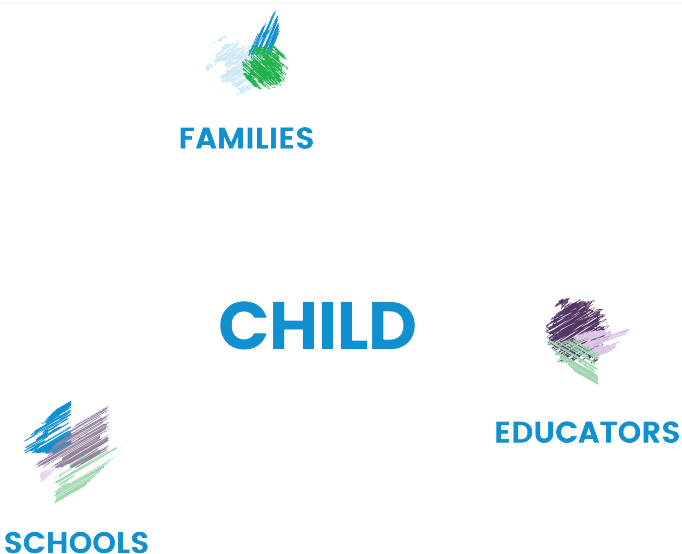Authenticity-based Social Emotional Learning ...
-
01
Begins with the belief that every child deserves a chance to be their best, most true self, and that every adult in that child’s life has the opportunity to support the child on their journey.
-
02
Creates learning environments where every individual feels seen, understood, and able to be their best, most true selves.
-
03
Nurtures the understanding, expressing, and valuing of our individual and collective experiences.
-
04
Prioritizes personal storytelling and creativity as the means for processing these experiences.
What is it like to experience and practice authenticity-based social emotional learning (AB-SEL)?
Our methodology combines the latest in social emotional learning and culturally responsive practices with our unique Authenticity-Based Social Emotional Learning (AB-SEL) methodology for understanding, expressing, and valuing individual and collective experiences. Why authenticity? Studies have shown that people who feel unable to function authentically in the world report higher levels of anxiety, depression, and negative behavior. Conversely, those who feel they can be their authentic selves are able to report higher levels of psychological and emotional well-being and are more likely to respond to difficulties with effective coping strategies.* In addition to this research, our programs are informed by evidence from The Aspen Institute, The Center for Emotionally Responsive Practice at Bank Street College of Education, Zaretta Hammond, CASEL and over 25 years of our own experience in the field.
In practice, the AB-SEL methodology combines hands-on experiential learning with guided group discussions and independent work. Modalities include Instructor led demonstrations, experiential learning, large group discussions, small group discussions, independent learning, practical exercise, neighbor discussions, artmaking, movement, and writing. During each component of our course, facilitators will model the lessons and techniques educators can use with their students. We don’t hand teachers a curriculum, instead our courses ask educators to go through the same social emotional training as their students in order to develop their own capacities and empathize with their students in the social emotional learning process.
*Michael H. Kernis & Brian M. Goldman, 2006.
Learn more
What our community says about our programming:
“I FELT vulnerable and valuable when sharing. I felt emotional. I felt so much calmer than I had all week.”
“I HEARD colleagues who feel similarly isolated, stressed, frustrated, burned out but who want to do something about it.”
“I LEARNED that you know yourself better than you think you do, you just have to listen”
“I SAW where I can make improvements to fulfill myself to be better for others in the long run”

All children need an interconnected web of grownups who teach, nurture them, and give them roots.
What is it that gives kids the encouragement to step further out into the world?
What is it that gives them the courage to take risks, express what they know, share how they feel?
What is it that helps them not only feel good in their own skin but confident, courageous, and truly proud of who they are?
It’s being seen by us, the adults in their lives. When this happens, children begin to see themselves. And with this growing understanding of themselves comes the confidence and courage to contribute to the world on their own terms—proudly, securely, authentically.












Preschool teacher Lizelle Canque showed us an amazing technique she learned from her kindergarten which she uses to this day to help her reduce stress and let her tap into her creativity. One of the things we loved about Lizelle’s piece is that it demonstrates the profound impact educators can have on their students' lives long after they have left the classroom. Years later, Lizelle not only uses the technique for herself but she now uses it with her students as well. Watch the video below to hear Lizelle explain the technique and how she uses it today.